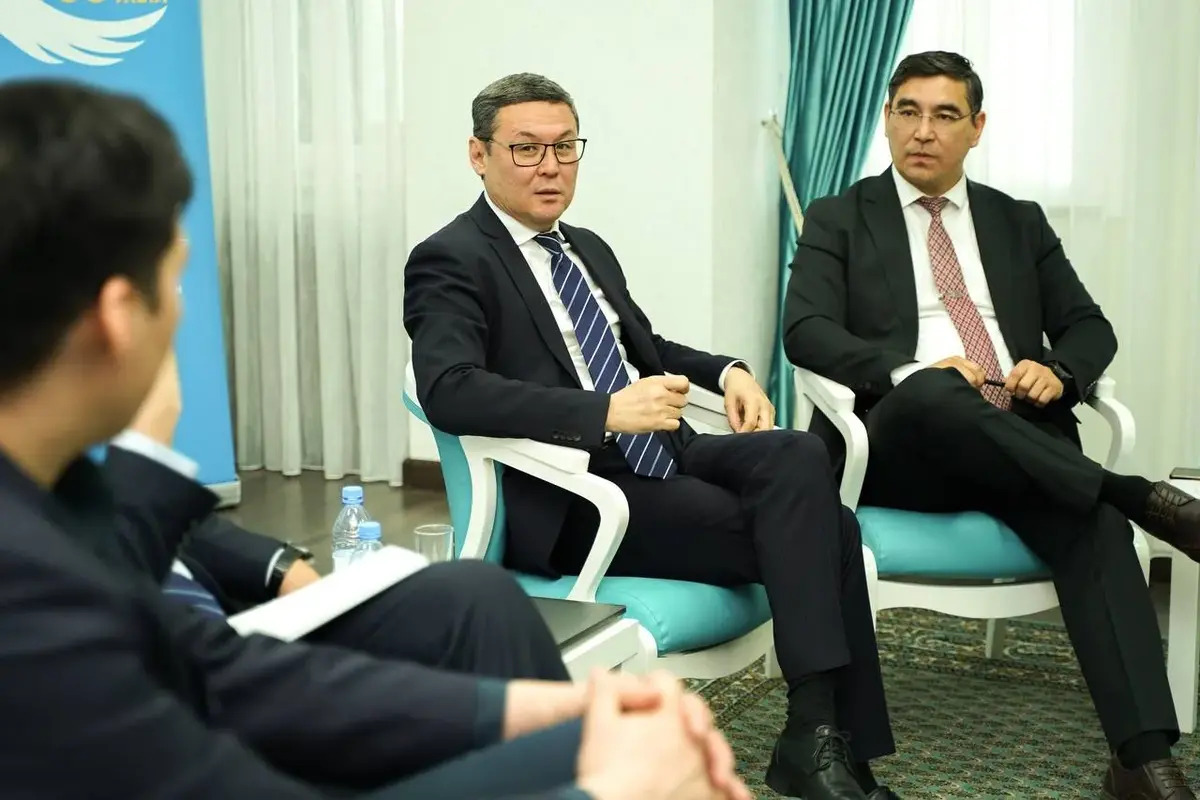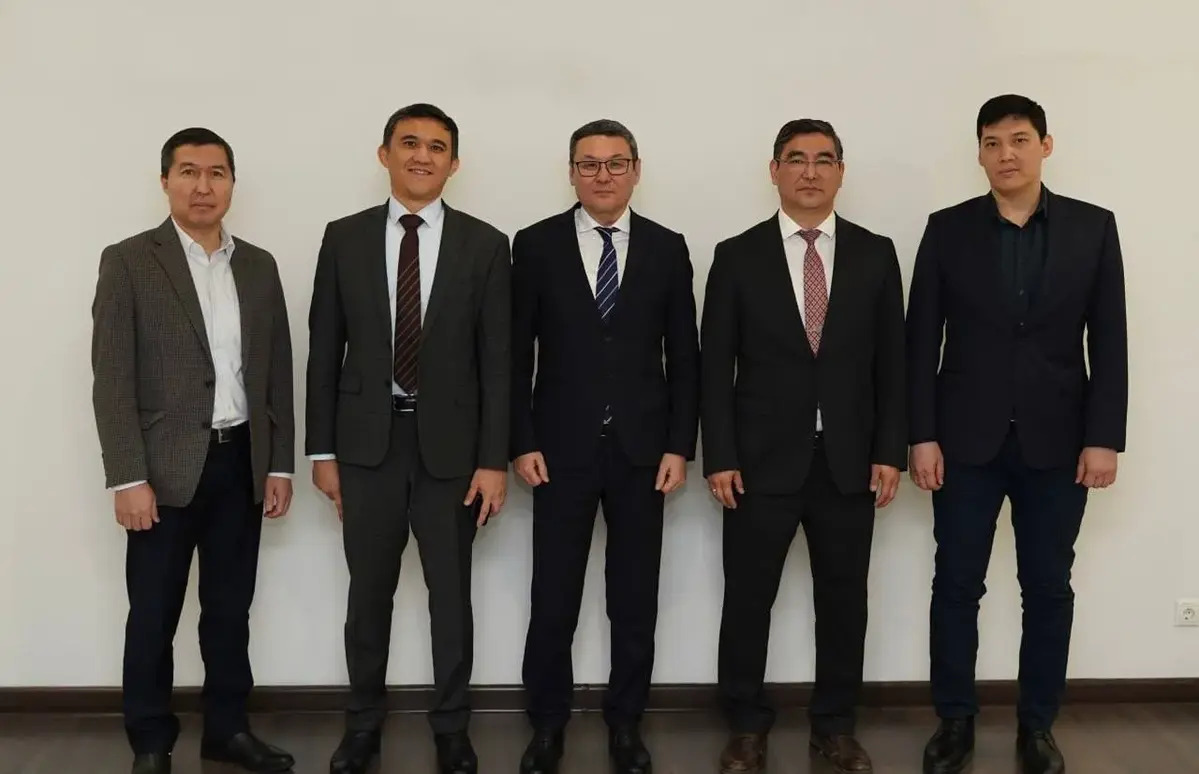ASTANA – Harvard University graduates discussed aspects of human capital development in the economic modernization in Kazakhstan during a recent meeting at the Kazakhstan Institute for Strategic Studies (KazISS), reported the institute’s press service.

Yerkin Tukumov met with the Harvard University graduates. Photo credit: KazISS
During the expert meeting, KazISS Director Yerkin Tukumov noted that the quality of human capital affects economic development, which is a key factor in implementing reforms in the country.
“Firstly, it is necessary to increase funding for science and education significantly. Today, our share of science funding is only 0.12% of gross domestic product (GDP). By 2025, science expenditures are planned to increase to 1% of GDP. Developed countries focusing on science spend an average of 2-4% of GDP on scientific development. The average expenditure on science in the Organization for Economic Co-operation and Development (OECD) countries is 2.48%. This is our target,” he said.

Yerkin Tukumov met with the Harvard University graduates. Photo credit: KazISS
According to Tukumov, the development of research universities, equal educational opportunities for both urban and rural youth, and highly qualified personnel are key factors in human capital development.
“According to the research of the Korn Ferry Hay Group, an international management consulting company, by 2030, the global economy will experience a shortage of qualified personnel. The global talent deficit will total 85.2 million people, leading to a loss of approximately $8.5 trillion in profits for the global economy. Kazakhstan is also currently experiencing a certain shortage of personnel in several specialties. Therefore, we must work proactively. We need to overcome our internal fear of immigrants,” Tukumov said, emphasizing that it is not too late for Kazakhstan to join the global talent race and thereby strengthen its human capital, the quality of which will be crucial for the economic and social development of the country.
In turn, healthcare expert Ardak Amangeldiyev believes that one of the factors of human capital is a healthy and thoughtful nation that has the opportunity to work and contribute to the economic and social development of the country.
“Since 2019, healthcare funding has increased by 2.5 times – from 1 trillion tenge (US$2.2 billion) in 2019 to 2.5 trillion tenge (US$5.5 billion) this year. In Kazakhstan, healthcare funding does not exceed 20% of GDP, while in developed countries, this indicator is 40-50% of GDP,” he said.
Nurken Urmantayev, a professor at Maksut Narikbayev Kazakh Law University, highlighted the need to develop leadership courses in Kazakhstan universities, citing the example of Harvard University.
According to the Satbayev University Chair Kuanysh Yergaliev, human capital is multifaceted, encompassing factors such as healthcare, education, income, and more.
“In terms of education, we have a decent foundation. When we went to study at Harvard, we were no worse than other students. However, when we graduated, for some reason, many of our professionals turned out to be in low demand. We need to think about what is missing; maybe we really lack soft skills. There are many questions, of course, but one of the key factors is corporate culture – it is the strategy for tomorrow. Corporate culture creates such a boost and provides soft skills that the university does not offer. We must instill democratic and horizontal approaches through persuasion, enlightenment, and education. Here is the most important question – how to do it. We all know what to do, but how to implement it is another question,” he said.
Yerken Turganbayev, director of the Nazarbayev University department, believes that human capital does indeed have a positive impact on Kazakhstan’s economy, but the impact is indirect, occurring through labor productivity, especially in the fields of healthcare and education.
“In Kazakhstan, over the last 20 years, human capital has influenced not so much the production of new technologies but the implementation of existing technologies in the world. This is also good, but we would like to have our own technology production,” said Turganbayev.
Deputy CEO of the Baiterek Holding Galym Ussen emphasized the need to focus not only on acquiring knowledge but also on gaining practical skills.
“It should be done systematically, as in Japan, for example, where they conduct training for graduates, imparting practical skills. Also, in Japan and the United States, there is a system of internships where students from the third year simultaneously reinforce their knowledge with practical skills. By the end of their education, the graduate is a ready professional,” said Ussen.
